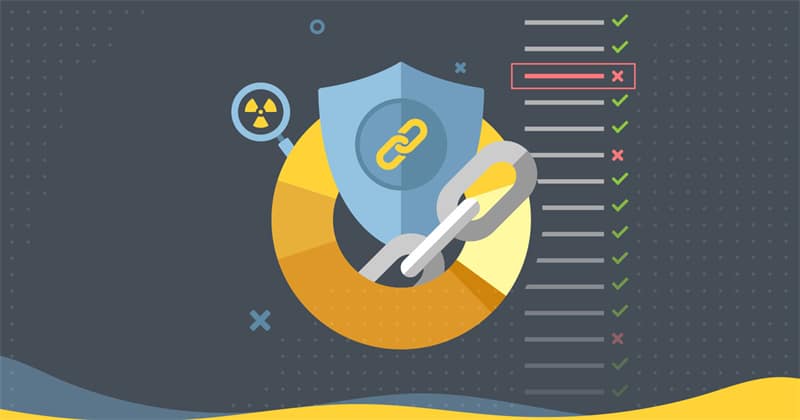What are Backlinks?
Backlinks are an integral part of the online ecosystem. They are essentially incoming links from external websites that direct users to your own website. When other sites link to your page, it's like they're giving your content a thumbs up. They're telling their audience that your content is worthwhile and trustworthy.
When another website includes a link to your page, it's as if they're endorsing your content. This doesn't go unnoticed by search engines, they use these links as clues to measure the appeal and value of your site. Having a collection of solid, appropriate links can give your site a boost, making it appear higher in search engine outcomes.
But, these links aren't just traffic directors for your site. They're also crucial in carving out a reputable image for your website on the internet. To succeed in search engine optimization (SEO), it's essential to gain a variety of high-quality links pointing to your site. Thus, accumulating and maintaining these links should be a priority.
Importance of Backlinks for SEO
Backlinks play a key role in setting up a website's trustworthiness and influence as seen by search engines. If a reputable website creates a link to another site, it clearly tells search engines that the linked site is trustworthy and relevant. The approval via backlinks helps search engines understand the importance and worth of a site's content, which eventually affects its position in search outcomes.
George Rossoshansky, a Rush Analytics speaker, explains:
“It is essential to note that the quality of backlinks carries greater weight than their quantity. Backlinks from reputable and relevant websites are of higher value in improving search rankings compared to a multitude of low-quality backlinks”.
SEO professionals and website owners focus on acquiring quality backlinks through various strategies such as creating valuable content, outreach to industry influencers, and guest posting.
Quality vs. Quantity: The Power of Relevant Backlinks
When it comes to backlinks, quality reigns supreme over quantity. It is far more valuable to have a handful of relevant and authoritative backlinks than a multitude of low-quality ones.
Relevant backlinks, stemming from reputable sources within your niche or industry, hold significant power in enhancing your website's authority and credibility. Search engines recognize these relevant backlinks as indications of trust and relevance, which can positively impact your website's rankings in search results.
Identifying Spammy Backlinks

What are Spammy Backlinks?
Spammy backlinks are low-quality links that come from dubious sources. They are typically generated in an attempt to manipulate search engine rankings and can have a detrimental impact on your website's reputation.
Negative Impact of Spammy Backlinks on Your Website
Spammy backlinks can result in penalties from search engines, causing your website to drop in rankings or even get delisted. They can also lead to a poor user experience, as users may be directed to irrelevant or harmful websites.
Signs of Spammy Backlinks
Signs of spammy backlinks include links from irrelevant or unrelated websites, excessive exact match anchor text, links from link farms or private blog networks, and a sudden influx of backlinks from low-quality sources.
Utilizing Backlink Spam Score Checker Tools
Backlink spam score checker tools can be immensely helpful in identifying spammy backlinks. These tools analyze various factors such as domain authority, anchor text distribution, and link quality, providing a spam score for each backlink.
Strategies to Remove Spammy Backlinks

Manual Backlink Audit
Performing a manual backlink audit involves using backlink analysis tools to examine your website's backlink profile. Identify suspicious backlinks by assessing their relevance, quality, and trustworthiness. Create a list of spammy backlinks for further action.
Contact Webmasters and Request Removal
After spotting unwanted backlinks, get in touch with the managers of the related websites and kindly ask them to remove these links. Show them proof of how these links are spammy and stay courteous during all interactions. Keep a record of your communications for later use.
Monitoring and Re-auditing
Regularly monitor your backlink profile to ensure the successful removal or disavowal of spammy backlinks. Perform periodic re-audits to identify any new spammy backlinks that may have appeared over time. This proactive approach helps maintain a clean and reputable backlink profile.
Safeguarding Your Website's Reputation
Building High-Quality Backlinks
Focus on building high-quality backlinks from authoritative and relevant websites. Engage in guest blogging and thought leadership activities, cultivate relationships with influencers and authorities in your industry, and create compelling, shareable content that naturally attracts backlinks.
Monitoring Backlink Profile
Continuously monitor your backlink profile using backlink analysis tools. Regularly analyze the new backlinks you acquire to identify any potential spammy links. If detected, take immediate action to remove or disavow them.
Keeping Abreast of SEO Best Practices
Stay updated with the latest SEO best practices to safeguard your website's reputation. Search engine algorithms constantly evolve, and staying informed about algorithm changes and updates will help you adapt your SEO strategies accordingly. Participate in industry forums, discussions, and conferences to stay ahead of the curve and learn from experts in the field.
Conclusion
Utilizing backlink spam score checker tools can streamline the identification process and provide valuable insights into the quality of your backlink profile. Conducting manual backlink audits, reaching out to webmasters for removal, and utilizing the Disavow Tool are key steps in the removal process.
Safeguarding your website's reputation extends beyond removing spammy backlinks. Building high-quality backlinks, monitoring your backlink profile regularly, and staying updated with SEO best practices are vital for long-term success.
Remember, a strong backlink profile based on relevant and authoritative links will not only improve your search engine rankings but also enhance your website's credibility and user experience. Take proactive measures to combat spammy backlinks and maintain a reputable online presence. Your website's reputation matters, and with the right strategies in place, you can ensure its continued growth and success.
